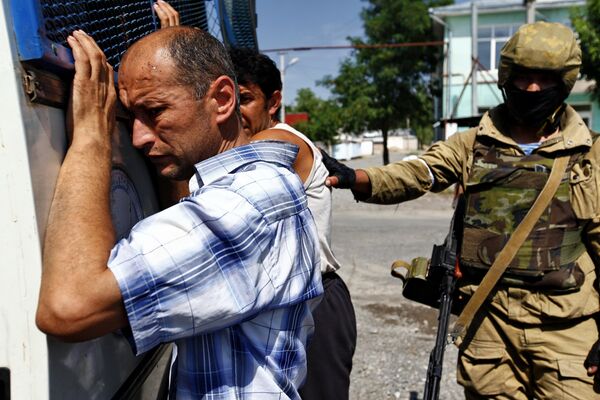The tragedy in Kyrgyzstan following the April revolt attracted international media attention.
Russia and the other post-Soviet republics are watching events in Kyrgyzstan especially closely because they are the first serious test of the Collective Security Treaty Organization, which aspires to become the leading military bloc in the post-Soviet space.
Strengthening the CSTO is one of Russia's key priorities and also one of its largest foreign policy achievements over the past few years. Established in 1992, the organization has moved from being on paper to an increasingly respectable force since 2000, when Russia began rebuilding its influence in Central Asia. It was a time when Russia and the Untied States vied for influence in Central Asia, where U.S. military bases had been established after 2001 to aid NATO's operations in Afghanistan.
The influence and prestige both of the CSTO itself and of Russia as its leader are very important to Moscow, which is why its flaccid response to the humanitarian catastrophe in Kyrgyzstan is so disconcerting. In fact, Russia limited itself to strengthening its military detachment in Kyrgyzstan and did nothing to stop Uzbeks being slaughtered. Worse still, it has not stated clearly that it will protect Russians in that Central Asian state, which came as a hard blow to people across Russia.
The CSTO has the funds for peacekeeping operations and is currently strengthening its collective rapid deployment force, which consists of ten battalions (4,000 troops), including three Russian and two Kazakh battalions, and one battalion each from the other CSTO member countries. Its aviation group (10 aircraft and 14 helicopters) is deployed at the Russian air force base Kant in Kyrgyzstan.
The force is trained to respond rapidly to developing situations and primarily to prevent actions by terrorist and radical movements. Had the interim Kyrgyz government, which is clearly not in control of their country, asked the CSTO countries to send their collective peacekeeping force to Kyrgyzstan, It is worth noting that should the conflict escalate, countries bordering Kyrgyzstan, Russia included, could be dragged into an Afghan-style war.
On the other hand, the Russian authorities' unwillingness to become involved in Kyrgyzstan is understandable. On more than one occasion Russia has acted as the arbiter in the affairs of its close, and distant, neighbors, and only got problems in return. This is why Russia may agree to interfere in Kyrgyzstan only if it is promised the broadest possible support from the international community and, ideally, from the UN Security Council.
However, Russia's current restraint could backfire, as the reputation of a leader in a conflict-ridden and explosive region can be won only through action and the resolute protection of both one's own interests and the declared principles of coexistence. If Russia does not demonstrate this decisiveness, others will.
MOSCOW. (RIA Novosti military commentator Ilya Kramnik)
The opinions expressed in this article are the author's alone and do not necessarily represent those of RIA Novosti.



